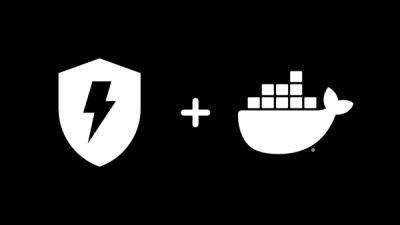QRCode-Kotlin


💚 Disponível em Português (Brasil) 💛

Creating QRCodes in Kotlin (and Java) is harder than it should be. QRCode-Kotlin aims to bring a simple,
straightforward and customizable way to create QRCodes, especially in the backend.
It is with this mission in mind that we keep doing our best to learn how developers use this library and their goals so
that we can provide a better library/API for them. Please, feel free to share if and how you're using this project ^^
- Pure Kotlin: Rewritten on pure Kotlin from a reference implementation of the QRCode spec
by Kazuhiko Arase
- Lightweight: No dependencies,
~115KB and it does what it says on the tin.
- Easy to use: Quickly and easily implement QRCodes with few lines of code.
- Good-looking: Many developers don't have time and sometimes knowledge to implement the perfect QRCode,
so this library tries to generate good-looking QRCodes by default.
- Server friendly: The JVM version is mainly focused on a personal use-case where I needed to generate QRCodes on
the backend, but all libraries I found were either complex or huge, usually both.
- Multiplatform: This is a KMP library with support to Java, JavaScript, Android, iOS and tvOS.
Table of Contents
1. Installation
The library is available
from Maven Central
and NPM JS, so you can add it to your project as a dependency like any
other:
Gradle:
// Use this for both Android and JVM
implementation("io.github.g0dkar:qrcode-kotlin:4.4.1")
Maven - JVM:
<dependency>
<groupId>io.github.g0dkar</groupId>
<artifactId>qrcode-kotlin-jvm</artifactId>
<version>4.4.1</version>
</dependency>
Maven - Android:
<dependency>
<groupId>io.github.g0dkar</groupId>
<artifactId>qrcode-kotlin-android</artifactId>
<version>4.4.1</version>
</dependency>
NodeJS:
npm install qrcode-kotlin@4.4.1
Browser:
<script src="https://cdn.jsdelivr.net/gh/g0dkar/qrcode-kotlin@main/release/qrcode-kotlin.min.js" type="application/javascript"></script>
Usage
To create QRCodes, the main class that should be used is the qrcode.render.QRCode class. It has static methods to help
you create a QRCode the way you want:
val squares = QRCode.ofSquares()
val circles = QRCode.ofCircles()
val roundedSquares = QRCode.ofRoundedSquares()
With that, you'll have a QRCodeBuilder instance. It has methods to
adjust colors, size, spacing, add a logo and more! Also, make sure to check
the Colors class as well.
Here's a code to get you started:
val helloWorld = QRCode.ofSquares()
.withColor(Colors.DEEP_SKY_BLUE)
.withSize(10)
.build("Hello world!")
val pngBytes = helloWorld.render()
FileOutputStream("hello-world.png").use { it.write(pngBytes) }
We highly recommend that you check out some examples:
The examples show pretty much all that can be done with the library! Even how to extend it so that it can create SVG
QRCodes ;)
You can mix and match all those together. Try generating the library logo and banner with gradients and all in SVG ;)
Spring Framework and/or Spring Boot
As said earlier, one of the main reasons I developed this library was to use it on a backend application. So it is only
natural to show how to do that :)
This Spring Framework/Boot controller method can generate QRCodes of a given content:
import org.springframework.core.io.ByteArrayResource
import org.springframework.http.HttpHeaders.CONTENT_DISPOSITION
import org.springframework.http.MediaType.IMAGE_PNG_VALUE
@GetMapping("/qrcode")
fun generateQrCode(content: String): ResponseEntity<ByteArrayResource> {
val pngData = QRCode.ofSquares()
.build(content)
.render()
val resource = ByteArrayResource(pngData, IMAGE_PNG_VALUE)
return ResponseEntity.ok()
.header(CONTENT_DISPOSITION, "attachment; filename=\"qrcode.png\"")
.body(resource)
}
Changes from v3
The main changes coming from v3.3.0 are:
- The main package of the classes was changed from
io.github.g0dkar.qrcode to simply qrcode
- The old name doesn't help languages that don't have the "package" concept, and other Kotlin libraries already name
their main package this way.
- The old
QRCode class was rewritten to be easier to create better looking QRCodes . The previous QRCode class was
renamed to QRCodeProcessor, with very minor API changes.
- For most of the simple cases, the new
QRCode class is compatible with the old one!
- A bunch of optimizations on how the QRCode is drawn. Previously, we'd had a canvas for each square, which would then
be copied into the QRCode. This was changed to have just one large canvas where each square will be individually
drawn directly.
- iOS and tvOS Support: Starting from
v4.0.7 an initial implementation of the QRCodeGraphics so that iOS and tvOS
are now supported. Any and all feedback are very welcome! -
Thanks a lot to ruicanas for all his contributions to this feature :D
License
Copyright since 2021 Rafael M. Lins, Licensed under the MIT License.
QR Code is trademarked by Denso Wave, Inc.
Thanks and Acknowledgements
- Kazuhiko Arase: For his reference implementation!
- Paul Varry: for opening the first few issues on the repo and helping to make the library
even better for everyone! :grin:
- Renan Lukas: For his friendship, patience and help with Android, Gradle and a bunch
of other stuff during the development of v2.0.0 and v3.0.0!
- Doomsdayrs: For pointing out how the library could be improved using Kotlin
Multiplatform, and helping out implementing it into the project.
- An awesome, furry friend for all the support through all these years :)
- ruicanas: For not only pointing out some issues with the iOS implementation, but also
fixing them! Thank you so much ^^
Support and Links
If you enjoyed the library and want to get me some coffee, use the buttons below :love_you_gesture:









